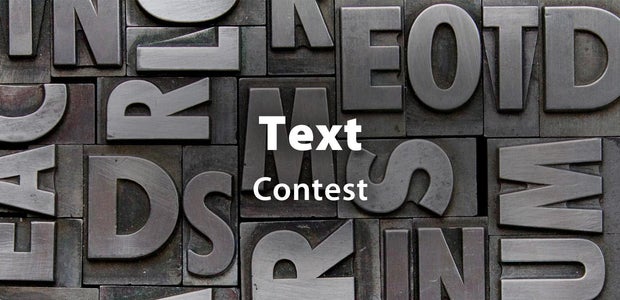Introduction: Music Ringing Wonderfull in Your Gallery - Spotify Provides
Spotify has been accused of missing to compensate musicians relatively. Helienne Lindvall of The Guardian reported that for artists who registered to a label threes a tangible risk that earnings which comes from attainable revenue of shares by the label would end up in the proverbial black box (non-attributable profits that stays with the label). And that indie labels ... instead of the majors and Merlin members, receive no advance, get no minimum per stream and only get a 50 % share of advertisement income on a pro-rata basis.
In 2009 Swedish artist Magnus Uggla wanted to pull his music from the service, specifying that after 6 months hed only earned exactly what an average busker could make in a day. [120] Norwegian paper Dagbladet reported in 2009, that record label Racing Junior had actually just made NOK 19 ($3.00 USD) after their artists had been streamed over 55,100 times. According to an infographic by David McCandless, an artist on Spotify would need over four million streams per month to earn US$ 1,160 (equivalent to working full-time at a base pay task). Luke Lewis of NME indicate problems with the Spotify business design, stating he was encouraged the free element of Spotify is unsustainable and that if Spotify is to have a future, it needs to be a feasible business. [123] In September 2011, US independent label Projekt Records entered a public disagreement with Spotify, specifying in the world I wish to live in, I visualize artists fairly compensated for their productions, due to the fact that we (the audience) believe in the value of exactly what artists produce. The artist’s passion, commitment and expression is appreciated and rewarded. Spotify is NOT a service that does this. Projekt will not belong to this unprincipled principle. In May 2012, British Theatre vocalist and Biffy Clyro visiting guitar player Mike Vennart kept in mind, Id faster people stole my work than stream it from [Spotify] They pay the artists essentially absolutely nothing. Actually pennies per month. Yet they make a killing. They’ve forced the sales means down in certain territories, which wouldn’t be so bad if the bands really got paid.
In March 2012, Patrick Carney of the Black Keys stated that Spotify isn't really fair to artists and that for a band that earns a living selling music; streaming services are not a feasible alternative. He called Spotify board member Sean Parker and asshole in reply to his claim that Spotify would make more money for the music market than iTunes. That person has $2 billion that he made from determining ways to take nobilities from artists, and that’s the bottom line. You can’t truly trust anyone like that.
Spotifys artist-in-residence reacted to the objection by mentioning that 70 % of Spotifys profits is paid out in aristocracies, which the per-stream royalty rate doubled in between the services beginning and mid-2012. Charles Caldas, CEO of the Merlin Network for individual artists, says that the trouble isn't really Spotifys failure to pay out significant nobilities, but that it’s covered to the record labels, which then pass too little of it on to their artists.
In July 2013, Radiohead frontman Thom Yorke and manufacturer Nigel Godrich removed their band Atoms for Peace and Yorkes solo music from Spotify. [129] in a series of tweets, Yorke mentioned: Make indisputable, brand-new artists you find on Spotify will not get paid. Meanwhile shareholders will quickly be turning in it. Simples ... New artists earn fuck all with this design. Godrich specified: [Streaming] can not work as a method of supporting new artists work. Spotify and so on either have to resolve that fact and alter the design for new releases otherwise all brand-new music producers ought to be bold and vote with their feet. Spotify reacted in a statement that the business was still in the early stages of a long-term project that’s already having a hugely favorable result on artists and new music, and that they are regularly speaking with artists and managers about how Spotify can assist develop their careers. In an October 2013 meeting with Mexican web site Sopitas, Yorke stated: I seem like as artists we have to combat the Spotify thing. I feel that in some ways whets taking place in the mainstream is the last gasp of the old market. Once that does finally die, which it will, another will take place.
David Byrne, formerly of the band Talking Heads, criticized streaming services such as Spotify in the Guardian newspaper on 11 October 2013. Byrne stated that if artists need to rely practically exclusively on the income from these services, they’ll run out work within a year and countered the supposed ability to find brand-new music with services such as Spotify by arguing that the essential problem of sustainability is not addressed. However, Byrne concluded his piece by admitting I do not have an answer.
In March 2014, the indie band Vulfpeck tried to money a concert tour making use of Spotify aristocracies from an album entitled Sleepify, which consisted solely of silence-- the band encouraged users to stream the album on a loop although they slept, so the resulting plays might increase the quantity of cash made. The album was pulled by Spotify in late-April 2014, mentioning unspecified violations of the services content guidelines-- the band had gathered enough streams to lead to a minimum of $20,000 in royalties before the album was pulled.





![Tim's Mechanical Spider Leg [LU9685-20CU]](https://content.instructables.com/FFB/5R4I/LVKZ6G6R/FFB5R4ILVKZ6G6R.png?auto=webp&crop=1.2%3A1&frame=1&width=306)



